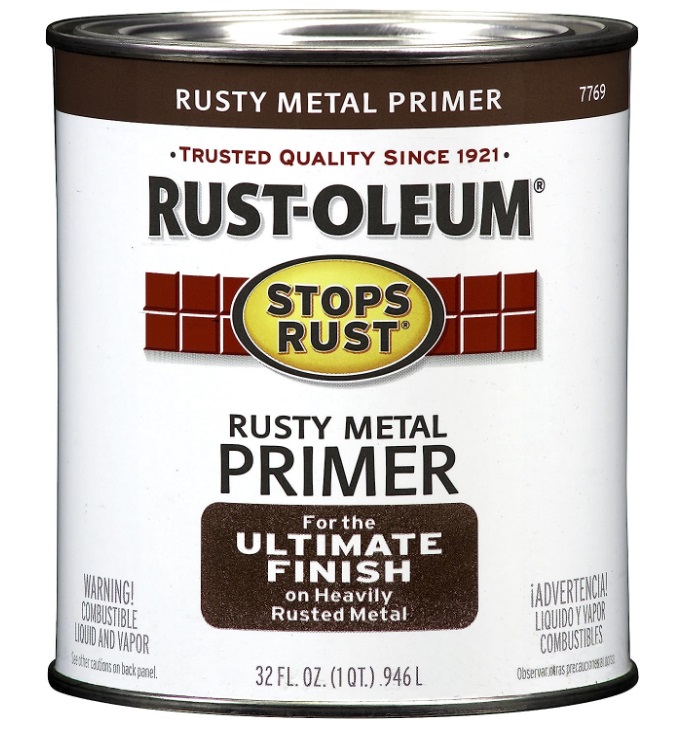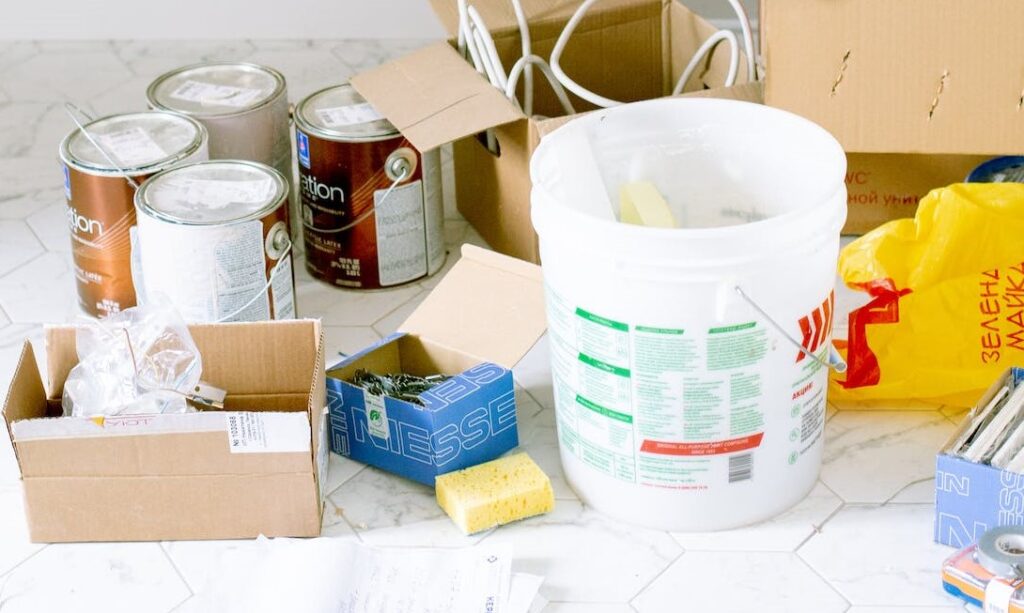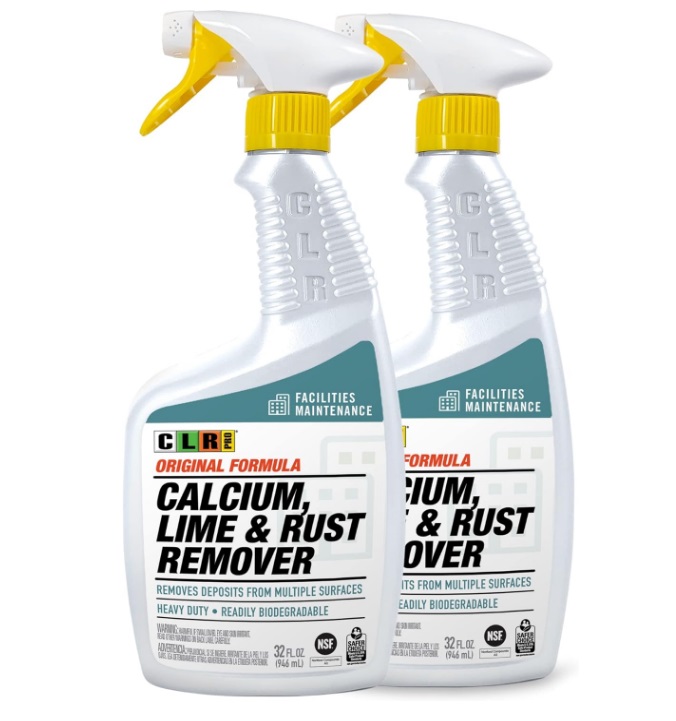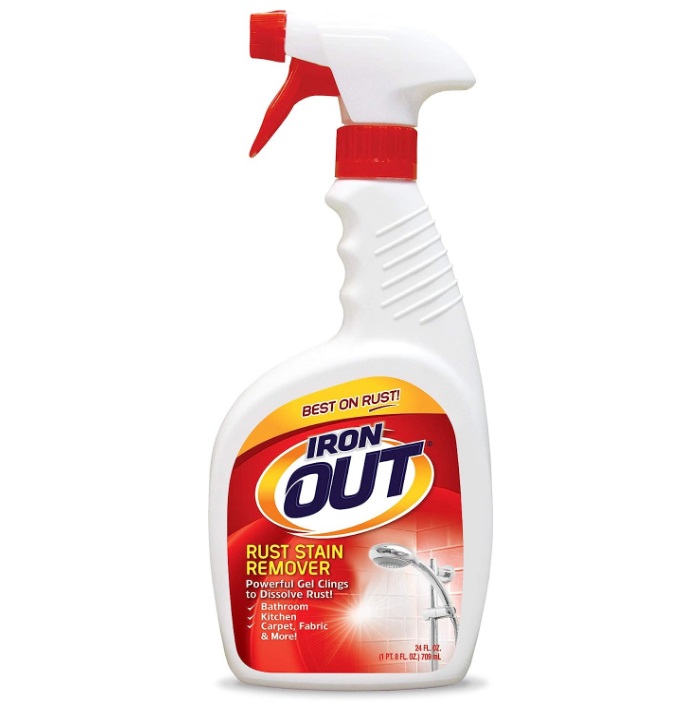Garage Door Rust: Proven Methods for Prevention & Repair
The garage door is like the face of your garage. It’s one of the first things people see when they look at your home, and as such, it should be well-maintained to make a good impression. A garage door in good condition also provides security and insulation, keeping your home safe and energy-efficient. Rust is the nemesis of any metal object, and just like any other part of our homes, regular maintenance is important to prevent garage door rust. Inspecting for signs of wear and tear, cleaning, and timely repairs, can significantly extend the life of your garage door, saving you money in the long run. More importantly, a well-maintained garage door ensures the safety of your family, as a faulty garage door can pose serious risks.
Causes of Rust on Garage Doors
Rust forms when iron or steel, the primary materials used in many garage doors, reacts with oxygen and water. This reaction, known as oxidation, results in the formation of iron oxide, which we commonly refer to as rust. The main factors contributing to rust formation on garage doors include:
Exposure to rain and humidity: The most significant cause of rust is prolonged exposure to moisture. Rainwater, humidity, or even sprinkler water can settle on the surface of the garage door, initiating the rusting process.
Salt and de-icing chemicals: In areas where road salt is used during winter, garage doors are at risk of rusting due to exposure to these corrosive elements.
Lack of maintenance: Neglecting regular cleaning and maintenance can allow dirt, grime, and moisture to accumulate on the garage door, promoting rust formation.
Poor quality materials: Some garage doors are made from low-quality metals that are more susceptible to rusting over time.
The Impact of Rust on Garage Door Functionality
Rust is not just an eyesore; it can also have a significant impact on the functionality and lifespan of a garage door. Here’s how:
Reduced lifespan: Rust weakens the metal, causing it to deteriorate over time. This can lead to the garage door needing replacement sooner than expected.
Impaired operation: Rust can affect the smooth operation of the garage door, making it difficult to open or close. In severe cases, the door may become stuck, rendering it inoperable.
Safety hazards: Rust can weaken the garage door’s structure, leading to potential safety hazards. For example, a rusted garage door may collapse or fail to provide adequate security.
Decreased home value: A rusted garage door can negatively affect the curb appeal of a home, potentially decreasing its market value.
How to Fix Garage Door Rust
Once rust makes its presence known on your garage door, it’s important to tackle the problem head-on. The longer rust is left untreated, the more it will spread, causing more damage in the long run. Here’s a step-by-step guide on how to fix garage door rust.
1. Identifying the Rusted Areas
The first step in addressing garage door rust is to identify all the rusted areas thoroughly. Look out for any orange or brown stains on the surface of the garage door. These stains could range from small spots to larger patches, depending on the severity of the rust. Don’t forget to inspect the bottom and sides of the door, as these areas are often more prone to rust due to their proximity to the ground. Additionally, check the hinges, springs, and other hardware components, as these are also susceptible to rust.
2. Steps to Remove Rust
Once you have identified all the rusted areas, follow these steps to remove the rust:
Cleaning: Start by cleaning the rusted areas with a mild detergent and water mixture to remove any dirt or grime. Make sure the surface is completely dry before proceeding to the next step.
Scrubbing: Use a wire brush or sandpaper to scrub away the rust thoroughly. Be sure to remove all traces of rust to prevent it from returning.
Priming: Apply a rust-inhibiting primer to the rusted areas. The primer will provide an extra layer of protection, preventing rust from forming in the future.
Check on Amazon: Rust-Oleum 7769502 Protective Enamel Paint Stops Rust

3. Painting and Finishing
The final step in fixing garage door rust is painting and finishing. Here’s how:
Choosing the Right Paint: When selecting paint for your garage door, make sure it is suitable for outdoor use and can withstand weather elements. The paint should also match the color of your garage door to ensure a cohesive look.
Applying the Paint: Apply the paint using a brush or roller, making sure to cover all the primed areas evenly. Allow the paint to dry completely before applying a second coat, if necessary.
Finishing: Once the paint is dry, inspect the door to ensure all the rusted areas have been covered. If any spots have been missed, repeat the painting process until the garage door is completely rust-free and looks as good as new.

Choosing the Right Products for Rust Removal
Using the right products is essential when it comes to rust removal. The market is flooded with a variety of rust removal products, each claiming to be the best. However, not all products are created equal, and the right one for you will depend on the severity of the rust and the specific needs of your garage door.
Types of Rust Removal Products
There are several types of rust removal products available, including:
Chemical Rust Removers: These products are designed to dissolve rust quickly and efficiently. They typically contain acids or other chemicals that react with the rust, making it easier to scrub away. Chemical rust removers are ideal for severe rust cases, but they should be used with caution, as the chemicals can be harmful to your skin and the environment.
Check on Amazon: CLR PRO Industrial Calcium, Lime & Rust Remover

Rust-Removing Gels and Pastes: These products are thicker than liquid rust removers and are designed to cling to vertical surfaces, making them ideal for garage doors. They work by breaking down the rust, allowing it to be scrubbed or washed away.
Check on Amazon: Iron OUT Spray Gel Rust Stain Remover

Natural Rust Removers: These products use natural ingredients to remove rust. They are typically less harmful to your skin and the environment but may not be as effective on severe rust.
Rust-Removing Tools: These include wire brushes, sandpaper, and other abrasive tools designed to scrub away rust physically. These tools are ideal for mild rust cases but can be time-consuming and labor-intensive.
Tips for Selecting the Best Product
When on the hunt for the perfect rust removal product, consider the rust’s severity first and foremost. Mild rust cases may be effectively handled with a rust-removing tool or a natural rust remover. In contrast, severe cases might need the use of a chemical rust remover or a rust-removing gel. If you’re eco-conscious, look for natural rust removers or products labeled as environmentally friendly. Don’t forget to check out reviews from other customers to gauge the product’s effectiveness. And lastly, always test the product on a small, inconspicuous area of your garage door before applying it to the entire rusted area to prevent potential damage.
Tips for Maintaining a Rust-Free Garage Door
Maintaining a rust-free garage door requires a proactive approach. A little time and effort spent on regular maintenance can save you from costly repairs or replacements in the long run. Here are some essential tips to keep your garage door in top-notch condition.
Regular Inspections
Conducting regular inspections of your garage door is crucial to preventing rust. Make it a habit to inspect your garage door thoroughly at least once a month. Look out for any signs of rust, wear and tear, or damage. Pay attention to the bottom and sides of the door, as these areas are more prone to rust due to their proximity to the ground. Don’t forget to inspect the hardware components, including the hinges, springs, and rollers, as these can also be affected by rust.
Addressing Rust Spots Immediately
If you do find any rust spots during your inspection, address them immediately. The longer rust is left untreated, the more it will spread, and the more damage it will cause. Use the appropriate rust removal products and methods to remove the rust and restore the garage door to its pristine condition. After removing the rust, apply a rust-inhibiting primer and paint to prevent rust from returning.
Utilizing Protective Coatings
Utilizing protective coatings is an effective way to prevent rust from forming in the first place. Apply a high-quality protective coating to your garage door to create a barrier that protects the metal from moisture, salt, and other corrosive elements. The protective coating will also make the garage door easier to clean and maintain. Regularly inspect the coating and reapply it as needed to ensure continued protection.
Conclusion
In conclusion, garage door rust can be a significant issue that affects not only the door’s appearance but also its functionality and longevity. However, with the right knowledge, tools, and products, you can effectively tackle and prevent rust, ensuring your garage door remains in top-notch condition. Regular inspections, immediate attention to rust spots, and the use of protective coatings are crucial steps in maintaining a rust-free garage door. By following these steps and the tips provided in this article, you will be well on your way to enjoying a smooth, rust-free garage door for years to come.
FAQs
1. What causes rust on garage doors?
Rust on garage doors is primarily caused by exposure to moisture, salt, and other corrosive elements. Scratches or damage to the door’s paint or protective coating can also expose the metal underneath, leading to rust.
2. How often should I inspect my garage door for rust?
You should inspect your garage door at least once a month for any signs of rust, wear and tear, or damage. Regular inspections are crucial in preventing rust and ensuring the longevity of your garage door.
3. Can I paint over rust on my garage door?
Before painting over rust, it’s essential to remove all rust spots thoroughly. Use appropriate rust removal products and methods to eliminate rust. Once the rust is removed, apply a rust-inhibiting primer followed by paint designed for exterior use.
4. What are the best products for rust removal?
The best rust removal product depends on the severity of the rust. For mild rust, rust-removing tools or natural rust removers may suffice. For severe rust, chemical rust removers or rust-removing gels may be necessary. Always read reviews and test the product on a small area before applying it to the entire rusted area.
5. Can I prevent rust from forming on my garage door?
Yes, rust can be prevented by regular cleaning and maintenance, using high-quality materials and protective coatings, and addressing any rust spots immediately. Apply a high-quality protective coating to create a barrier that protects the metal from moisture, salt, and other corrosive elements. Regularly inspect the coating and reapply as needed.




